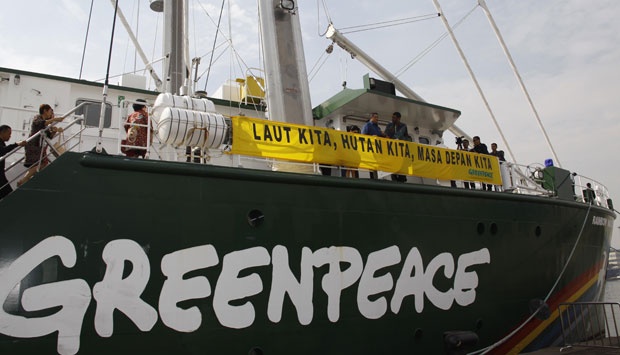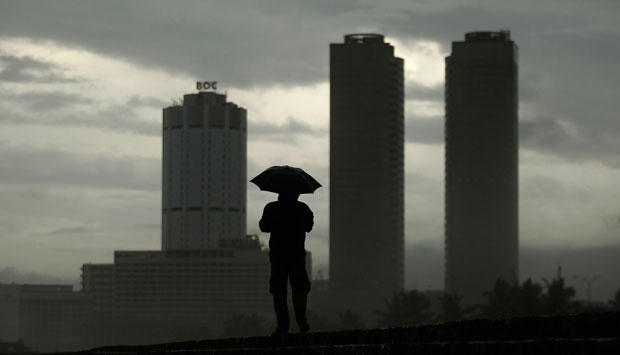Indonesia's Jungle Corridors Key To Save Endangered Orangutan
1 August 2015 19:00 WIB

TEMPO.CO, Camp Leakey, Central Kalimantan - The bushes shook violently and the female orangutan froze. Her baby clutched her tightly before the two quickly disappeared into the Borneo undergrowth. As the bushes parted, a broad-shouldered male orangutan strutted to the feeding platform.
Dominating the fruit on offer, the male great ape dared the other orangutan in the trees to challenge him for the food.
The endangered orangutan is a solitary animal and it is rare to sight these great apes in groups, but this is Camp Leakey in the Tanjung Puting National Park in Indonesia and home to around 6,000 rescued orangutans.
The park in Borneo's central Kalimantan has been protecting great apes for 38 years but its success is now a problem as the reserve does not have sufficient space and resources to sustain any more apes.
Yet Dr Birute Galdikas, 69, who heads Orangutan Foundation International (OFI), has some 300 more rescued orangutans in her care waiting for a release back into the wild.
Galdikas' OFI is desperately trying to buy 6,367 hectares (15,807 acres) of land opposite the Tanjung park, which includes a vital stretch of land along the Sekonyer River, to accommodate the extra apes - price tag $2.5 million.
But OFI, which relies on donations and money from eco-tourism, has only been able to raise a third.
"We have to protect this stretch of land," Galdikas told Reuters following an eco-trip to Camp Leakey to visit some of the rehabilitated great apes returned to the wild.
"If we lose this river edge, where are all the proboscis monkeys going to go? Where are all the (300) orangutans going to go?"
Protecting the forest habitat of the orangutan has become as important as rescuing the great apes if the species is to survive, says Galdikas, who came to the Tanjung forest when she was 25 years old and has spent 44 years trekking through forests and wading up to her armpits in swamps to protect orangutans.
PALM OIL
Global demand for palm oil, which is found in supermarket products from margarine to lipstick and shampoo, and also used as a biofuel, has helped drive deforestation.
Palm oil plantations now surround Tanjung Puting National Forest, cutting corridors through which orangutans and other wildlife use to cross from one large forest to another.
Indonesia, which is ranked fifth in countries with the most annual tree cover loss, imposed a 2011 moratorium on clearing primary natural forests and peat land.
President Joko Widodo in April extended the moratorium for two years and expanded it to cover 1 million hectares (2.5 million aces). The government also increased penalties for illegal logging.
But the moratorium applies only to new areas of forest. Forests in existing commercial concessions are not protected and as a result palm oil plantations have expanded.
Palm oil production in Indonesia rose from 10.5 million hectares (26 million acres) in 2013 to an estimated 11.44 million hectares (28 million acres) in 2015, according to the Agricultural Ministry.
Togar Sitanggang, Secretary General of the Indonesian Palm Oil Association, put expansion this year at about 300,000 hectares, and said it was limited to areas already given permits a few years ago. He said a pledge on sustainable development, new forest laws and a soft market were slowing expansion.
Indonesia says palm oil is important for development because it reduces poverty by bringing roads, schools and other infrastructure to rural communities and generates five million jobs that benefit 15 million people.
And a government biofuels policy, which aims to cut fossil fuel imports and save $1.3 billion, is encouraging small landholders to turn to palm oil production. Under the policy each litre of diesel must contain 15 percent biofuel.
"The problem is allowing landholders in Indonesia taking part of the forest for palm oil plantations - what is good for the economy may not ultimately be good for the forests," said Galdikas.
REUTERS






















